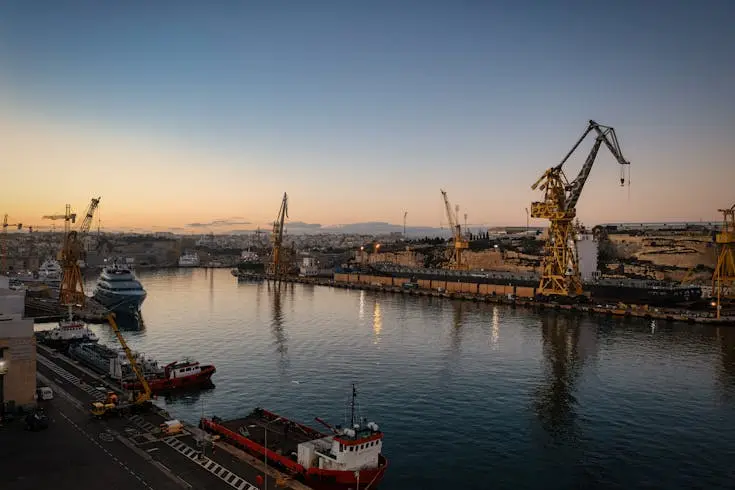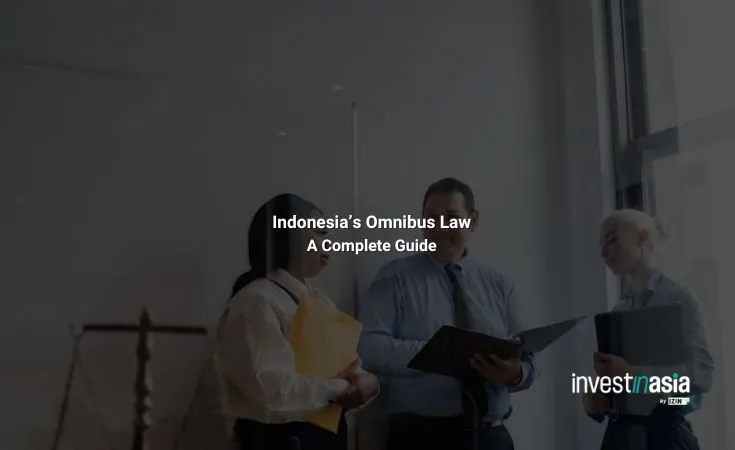Indonesia’s Omnibus Law, officially known as the Job Creation Law (Law No. 11 of 2020), is the cornerstone of the country’s economic reform. It unifies and simplifies over 75 regulations that once made business setup and operation complex. For foreign investors, this law represents a major shift toward a more open, predictable, and investment-friendly environment.
The bottom line: Indonesia is opening more sectors to foreign ownership, digitizing licensing through the OSS-RBA system, and introducing flexible employment rules—all aimed at improving ease of doing business and attracting sustainable foreign direct investment (FDI).
From Restriction to Opportunity: Positive Investment List


Before 2020, Indonesia maintained a Negative Investment List that restricted foreign participation in many industries. The Omnibus Law reversed this approach through the Positive Investment List, identifying which sectors are now open for 100% foreign ownership.
Priority sectors, such as renewable energy, infrastructure, healthcare, and technology, also benefit from tax holidays, simplified licensing, and import incentives.
This change allows investors to explore industries previously off-limits, giving multinational companies and startups greater flexibility in establishing or expanding their operations.
Also read: Top Foreign Investment Sectors in Indonesia
Simplified Company Formation and Structure
The Omnibus Law overhauled the process of company formation:
- Minimum capital requirement removed: Investors can now determine authorized capital freely for limited liability companies (Perseroan Terbatas or “PT”).
- Single-shareholder PT (One-Person Company) introduced for small enterprises.
- PT PMA remains the preferred structure for foreign-owned entities, offering limited liability and 100% ownership in eligible sectors.
This makes Indonesia’s company setup process more aligned with global business practices, reducing entry barriers for new market entrants.
Also read: The Types of Companies and Business Entities in Indonesia
Risk-Based Licensing through OSS-RBA
Licensing has shifted to a risk-based framework under the OSS-RBA (Online Single Submission – Risk-Based Approach).
- Low-risk businesses only need a Business Identification Number (NIB).
- Medium-risk businesses must meet standard compliance criteria.
- High-risk sectors require full permits, environmental assessments, and certification.
This digital system integrates environmental and spatial planning databases, ensuring faster processing and transparent monitoring—critical for real estate, manufacturing, and energy projects.
Also read: Why Indonesia’s OSS System Still Confuses Foreign Investors
Employment and Labor Law Reforms


The Manpower Cluster within the Omnibus Law redefines employment in Indonesia:
- Fixed-term contracts extended from 3 to 5 years.
- Outsourcing expanded to cover all business functions.
- Regional minimum wages now linked to local economic indicators.
- Unemployment insurance (JKP) introduced for job loss protection.
Employers hiring foreigners must secure RPTKA approval from the Ministry of Manpower, except for shareholders or high-level management roles. However, HR-related positions remain closed to expatriates.
These changes give employers more flexibility while maintaining worker protection and regulatory oversight.
Also read: Indonesia Labour Law & Employment Regulations: Complete Guide
Ongoing Legal Adjustments and Compliance
The Omnibus Law has faced judicial reviews and amendments, notably after the Constitutional Court’s conditional ruling in 2021. Subsequent updates in Law No. 6 of 2023 and various implementing regulations continue refining investment, licensing, and labor provisions.
For foreign investors, this means that compliance is a moving target, staying informed and partnering with local experts is crucial to avoid legal and operational risks.
Also read; What Happens If You Operate a Business in Indonesia Without a Proper License?
Partnering with Experts for Seamless Market Entry
As Indonesia’s legal and regulatory environment evolves, foreign investors need a reliable local partner to ensure smooth setup, compliance, and strategic growth.
At InvestinAsia, we help you establish and expand your business in Indonesia with end-to-end services, from company registration and business licensing to visa, work permit, and investment advisory.
Our expert team navigates the complexities of the Omnibus Law, OSS-RBA, and Positive Investment List on your behalf—so you can focus on scaling your business confidently.
Learn more about InvestinAsia’s complete services:
- PMA registration in Indonesia (Foreign Company)
- Representative office registration in Indonesia
- Indonesia Local PT PMDN Set Up
- Indonesian Virtual office setup
- Business registration number in Indonesia
- Business Licenses in Indonesia
- Trademark Registration in Indonesia
- Franchise License in Indonesia
- Indonesia Visa and Stay Permits Application
- Indonesia Tax Consultant and Compliance
If you are interested in starting a business in Indonesia without hassle, you can start by contacting us for FREE consultation.
FAQs: Understanding Key Aspects of Indonesia’s Omnibus Law
What is the Omnibus Law in Indonesia?
It’s a comprehensive reform known as the Job Creation Law, consolidating multiple laws to simplify investment, licensing, and employment.
What is the difference between the Negative and Positive Investment Lists?
The Negative List restricted foreign ownership; the Positive List now defines sectors open for full or partial foreign investment.
How does the OSS-RBA system work?
It’s a centralized online portal for all business licenses, classifying businesses by risk level to determine permit requirements.
Can foreigners own 100% of a company in Indonesia?
Yes, in most sectors under the Positive Investment List. Some industries still impose caps or require local partnerships.
What is the best company structure for foreign investors?
The PT PMA (Foreign-Owned Limited Liability Company) offers full control and access to Indonesia’s local market.



